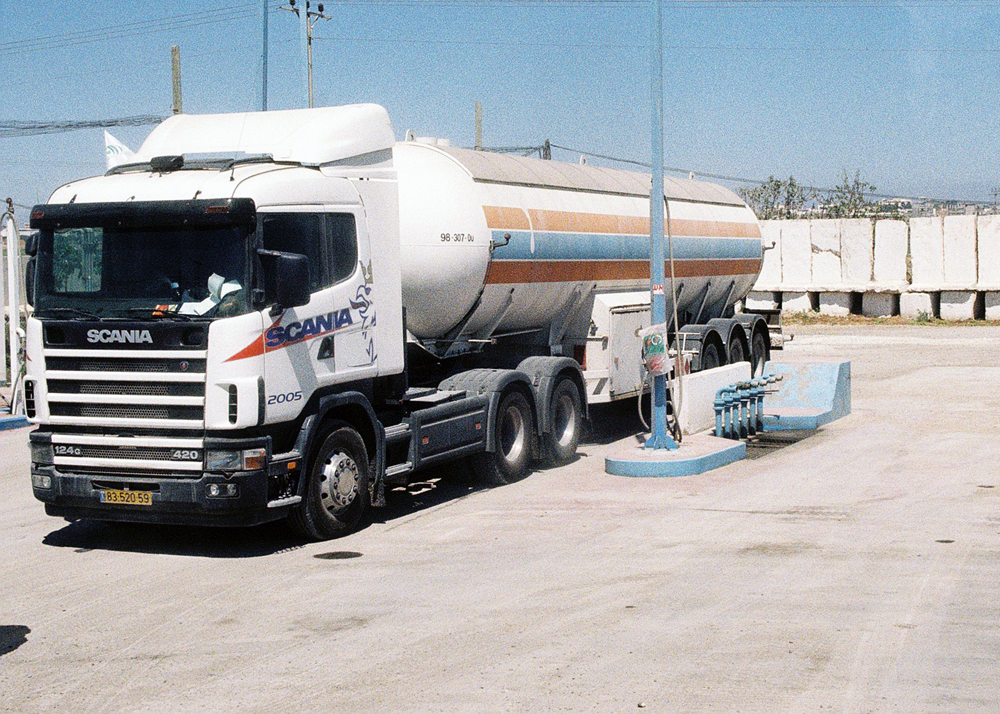UN and Palestinian officials in Gaza have said some 760,000 litres of industrial fuel for Gaza’s power plant were imported from Israel on 22 January, and another 200,000 were delivered on 23 January.
However, Nahal Oz, the fuel crossing point, was closed late on the morning of 23 January for unclear reasons, though the situation at the Rafah border is being seen as the problem, foreign aid workers said.
An official at the Gaza power plant said current supplies would last until 25 January at the latest, after which the plant would again have to shut down its turbines, as it did earlier in the week.
Defence Minister Ehud Barak has said he would keep up the "pressure" on Gaza.
Gaza's sole power plant had been idle since the evening of 20 January, due to lack of fuel. The subsequent power cuts forced hospitals to work on emergency generators, and pumps for drinking water were also severely affected: Palestinian officials said about 40 percent of Gaza's population was without water during the outages.
Israel and Egypt continued to supply about half of Gaza's electricity needs in recent days, but most of the population was directly affected by the power cuts.
Shortly before Israel announced the slight relaxing of what had been a total lock-down of the enclave, the aid agency Oxfam had warned that Gaza would face an imminent water and sewage crisis unless the blockade was lifted.
Israel continued to accuse Hamas of intentionally exacerbating the crisis in Gaza, and even said Hamas coordinated with the Doha-based Al-Jazeera TV channel to cut power themselves in the Strip at the time of the evening news broadcast, the Israeli Yediot Ahronot daily reported, though the news network denied the charges.
 Photo: Tom Spender/IRIN  |
| A Qassam rocket is displayed in Sderot town hall next to pictures of residents killed in rocket and other attacks |
Rocket fire
Barak announced the total closure on 17 January, after Palestinian militants released a barrage of rockets on southern Israel over several days, while Israel conducted ground operations and airstrikes inside the Gaza Strip.
In the last few days, Israel has scaled back its military operations to target only militants involved in rocket fire, a security official said, while rocket and mortar shell fire into southern Israel significantly decreased.
Apparently, the near total cessation of fire from Gaza contributed to the Israeli decision to allow in fuel, paid for by the European Union, which had termed the sanctions "collective punishment". An Israeli official implied that future easing of restrictions would be dependent on the rocket fire.
Border closed to most vehicles
However, Israel is still keeping the borders shut for petrol vehicles, with Prime Minister Ehud Olmert saying the Gazans "can walk". However, there were indications that UN agencies and other aid organisations might be able to import some fuel for their own needs.
Some agencies had warned that should the closures be maintained, they would not be able to continue aid work. UNRWA, the UN agency for Palestinian refugees, had said a shortage of bags for food aid, as well as a lack of petrol for trucks, would hamper distribution in the coming days.
Furthermore, while Israel was set to agree on the entrance of aid agency trucks into Gaza, commercial lorries, even those with humanitarian supplies, would still be banned, foreign aid workers told IRIN. Gaza has not been allowed to export since the Islamic group Hamas’s takeover last June.
Food crisis warning
A World Food Programme (WFP) official in Gaza told IRIN that while it has managed to bring in nine trucks in the past two days, the banned commercial trucks were needed, as UN agencies only supplied 60-65 percent of the food needs of the over one million beneficiaries in the enclave.
The official warned that should the closures continue, a food crisis might develop, noting that already food insecurity levels were high. The WFP has also said the closures were already affecting its ability to import and distribute food to those in need.
shg/ar/cb
This article was produced by IRIN News while it was part of the United Nations Office for the Coordination of Humanitarian Affairs. Please send queries on copyright or liability to the UN. For more information: https://shop.un.org/rights-permissions





